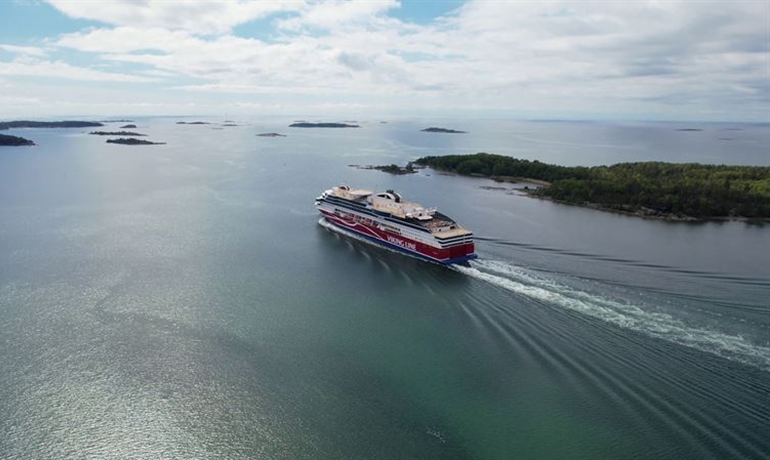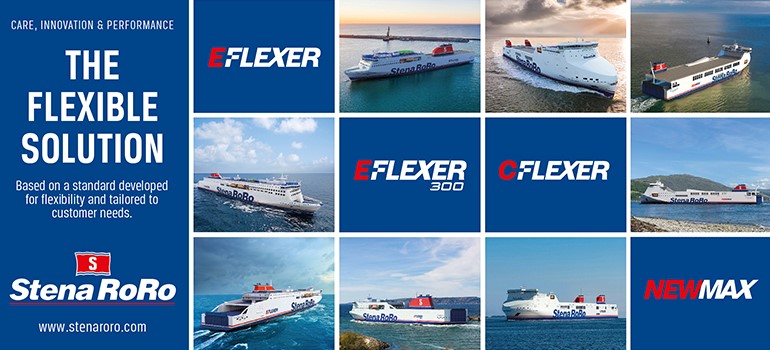
VIKING GLORY © Viking Line
Decatrip Project Completed – RMC, Viking Line, Åbo Akademi, and Kempower Collaborate to Create a Green Maritime Corridor Between Turku and Stockholm
The innovative project Decatrip, which began in 2022, has been completed. The project enables the development of one of the world’s first carbon-neutral sea routes. RMC explored how existing ships could be modified to become more environmentally friendly. The company is now equipped to modernise ships, enhancing their environmental friendliness.
The joint Decatrip project, undertaken by Rauma Marine Constructions (RMC), Viking Line, Åbo Akademi, and Kempower has concluded. The project’s goal was to develop one of the world’s first carbon-neutral “green” corridors on the maritime route between Turku and Stockholm. RMC’s role was to investigate the technology needed to modernise Viking Line’s vessels and retrofit them with batteries to reduce fuel consumption and methane emissions.
As a result of the project, Viking Line now offers green transport services to their customers, effectively creating one of the world’s first green maritime corridors. “Today we can offer biofuel to our passengers and freight customers by calculating the emissions attributed to the journey. By opting for biofuel, we’re able to accordingly boost our procurement of 100% renewable biofuel for low-emission travel,” says Johanna Boijer-Svahnström Communications Director for Viking Line.
“The Decatrip project proved that sustainable shipping using renewable fuels is feasible, but you must consider the whole business case and involve both technology providers and end customers. By doing so it was possible to create the world’s first Green Maritime Corridor,” says Magnus Gustafsson, Research Director at the Laboratory of Industrial Management at Åbo Akademi University.
RMC’s research in the project has also borne fruit. According to the research, implementing hybrid solutions for the Turku–Stockholm route and similar routes elsewhere in the world is feasible even on a tight schedule. “The lifespan of ships is long. Therefore, it is important that existing ships can be modernised into hybrids, thereby promoting the green transition in maritime transport. As a result of the project, RMC is fully prepared to carry out similar modernisations on comparable routes. Finland, is committed to establishing green marine corridors, and this successful project supports that commitment,” says Mika Laurilehto, Deputy CEO of RMC.
In addition to Decatrip, RMC is involved in another project focused on environmental sustainability in maritime transport, aiming to create a concept for a fully electric ship.
Project Partners Continue to Develop the Green Corridor
The Decatrip project, which began in 2022, received partial funding from Business Finland. The majority of the funding came from the participating companies.
Each partner had a specific role in the project. Viking Line developed a commercial model based on carbon-neutral maritime transport. RMC analysed how existing ships could be upgraded to be more environmentally friendly. Kempower developed retrofittable charging devices for electric vehicles on ships. Åbo Akademi developed a simulation model to optimise battery and electric vehicle charging devices. Additionally, Åbo Akademi analyzed the project’s societal benefits and developed a framework for analysing similar projects.
The project partners will continue to develop the green corridor between Turku and Stockholm. Additionally, the project assessed the concept’s scalability potential for developing similar corridors.
jun 07 2024


















